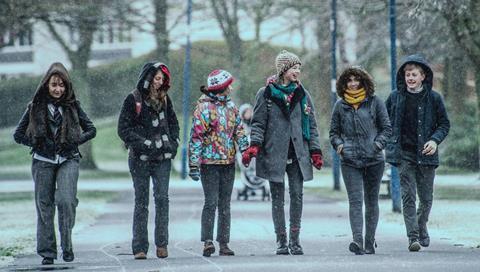John Prockter argues that with a little vision and the help of God, days with fewer daylight hours can be full of opportunity
Although the Autumn term is probably objectively the most pressured and challenging time of the school year, I think the Winter half-term after Christmas is perhaps the most tricky to navigate, especially given how much young people struggle to navigate cold, dark days.
If your schools are anything like the ones I serve, they will have made a big deal of drumming attendance into the young people at the end of term. It’s my observation that schools are turning being ‘in school’ into a competition that some people are ‘winning’.
This morning, while I sat in one whole school assembly on the last day of term, I was thrilled for the 95 students who hadn’t missed a single day of school since the start of term, but I couldn’t help thinking that those kids are probably likely not to pick up bugs, and might have a lot of support at home. After all, most of the absence is simply illness, which you can’t do much about.
While I sat listening, I couldn’t help but think of two particular young people from the same school who, for complicated reasons, can’t get out of bed. They’re low, tired and defeated. In both cases, the parents are getting a great deal of support, and if I named the school, it would only be in recognition of the excellent job they’re doing.
I must admit that I hate the competition for good attendance, but I love the lengths schools will go to help families with struggling children.
As I get further into education and governance, I’m learning that young people who are struggling are likely to be low for a range of reasons. One area I’ve been learning about since the pandemic is ACES and the impact of them on the development and success of young people.
“Adverse Childhood Experiences (ACEs) are “highly stressful, and potentially traumatic, events or situations that occur during childhood and/or adolescence. They can be a single event, or prolonged threats to, and breaches of, the young person’s safety, security, trust or bodily integrity.” (Young Minds, 2018).”
Manchester University: NHS Foundation Trust
Although it’s likely that we will also be struggling in the Winter months, I think it’s important that we consider how we use these less active months to help the young people in most need. Regarding schoolwork ministry, Easter and Christmas are great opportunities to share a well-communicated message of Jesus. Then, in the Spring and Summer, we can get active and take young people out and about.

Get more involved
So what’s the best use of our time in the Winter? I suggest this is the time of year to get more involved with young people and their families.
For me, I’ve taken two young people who are struggling with attendance and have gone through difficult experiences in their lives. I’m not a counsellor or even an exceptionally qualified mentor or coach, but I can knock on the door and sit and listen to the parents trying to understand why they’re going through this time of difficulty.
Recently, I’ve been working with two young lads. Often, all I’m doing is sitting in their house encouraging them, playing a game and then going to school meetings where the parents who feel a great deal of pressure to be seen as doing their best.
I appreciate this is probably a great challenge, and it also poses difficult safeguarding questions. Still, as Christian workers in education, we should get ourselves involved. According to the research, 47% of all people have gone through at least one Adverse Childhood Experience, which could be as traumatic as abuse, but did you know that even experiencing divorce or losing a relative is considered an ACE? You may not be equipped to help those who have been abused, but I think you could easily sit with a young person who has gone through similar experiences to you. Given the statistics, you’ve probably got experience with ACEs in your own life.
Winter Wisdom
As I come to a close with this article, I’d like to acknowledge that not everyone can visit young people at home. However, the good news is that you can still engage with the reality of how people struggle in January and February.
My organisation has created a really simple resource called Winter Wisdom. It’s completely free, and all the resources are available for download from our website.
You can use the resources to deliver a Winter Wisdom assembly, and the website contains a PowerPoint with presenter notes for you. You can also use the small group video to create a discussion about what it means to understand wisdom. In the video, I talk about ancient wisdom, using the story of Elijah from 1 Kings 19. There’s even a printout for you to use as a handout that encourages young people to set goals related to sleeping well, eating right, talking and praying.
Please feel free to use this resource in your programme, and if you’re able, please also try to get more involved with students who are struggling at this time of year.
Finally, here’s a link to the small group discussion video from the website.






































